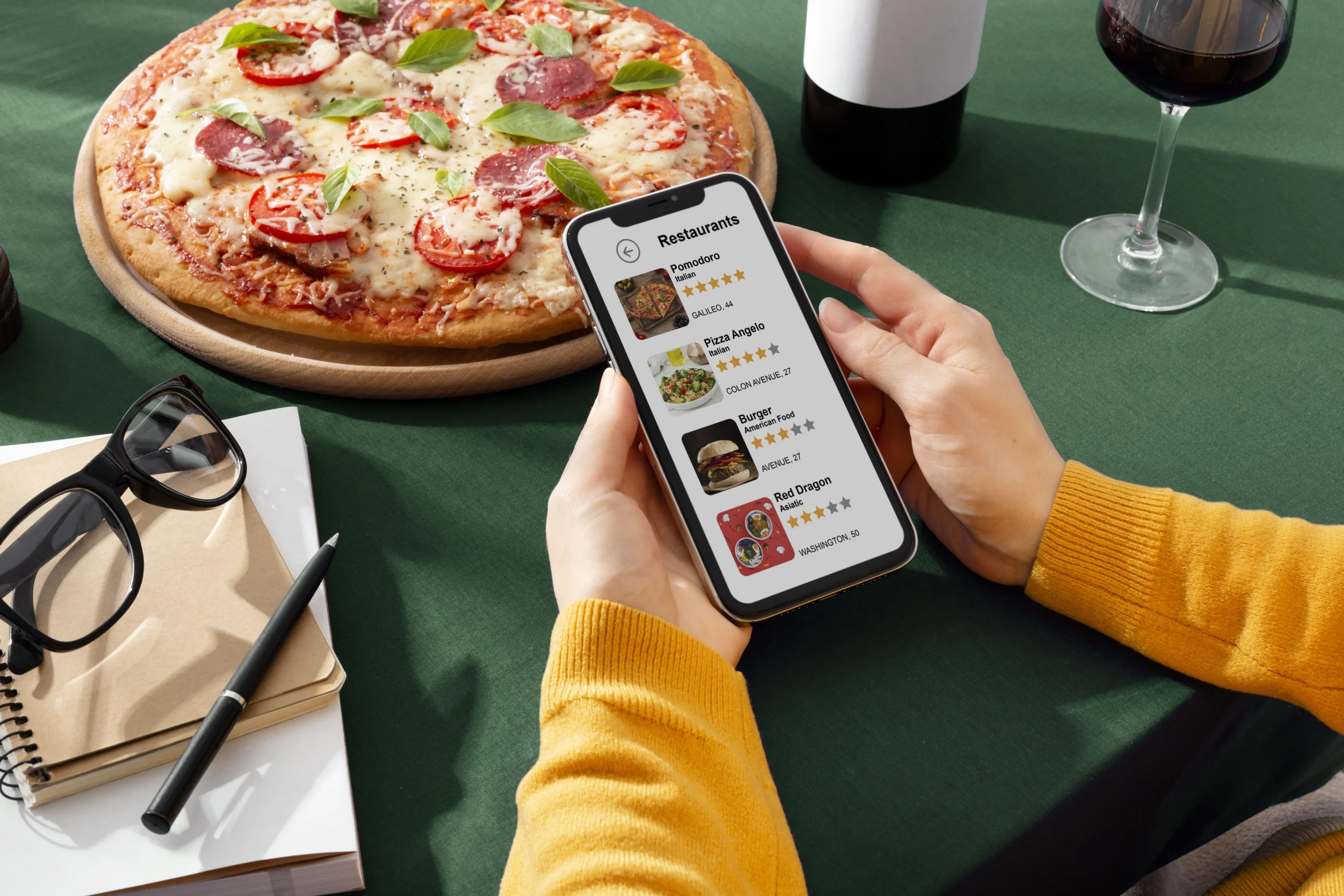148 total views
In 2024, the food delivery app development landscape is set to transform dramatically, driven by emerging technologies and evolving consumer preferences. As a leading food ordering app development company, we have identified several key trends that will shape the future of this industry. This article explores these trends in depth, offering insights for businesses looking to stay ahead of the curve. Additionally, as a prominent mobile app development company in the UK, we provide a comprehensive overview of how these trends are being implemented in the market.
Integration of AI and Machine Learning
Artificial Intelligence (AI) and Machine Learning (ML) are revolutionizing the food delivery app development sector. These technologies enable apps to offer personalized recommendations, optimize delivery routes, and improve customer service through chatbots and virtual assistants.
Personalized Recommendations
AI algorithms analyze user behavior and preferences to provide tailored food recommendations. This not only enhances the user experience but also boosts order frequency and customer retention.
Optimized Delivery Routes
Machine Learning models predict traffic patterns and delivery times, allowing drivers to choose the fastest routes. This reduces delivery times and operational costs, leading to increased customer satisfaction.
Adoption of Drone Deliveries
Drone technology is poised to become a game-changer in 2024. Major companies are already experimenting with drone deliveries to offer faster and more efficient service.
Speed and Efficiency
Drones can bypass traffic congestion, ensuring that food arrives hot and fresh. This technology is particularly useful in urban areas where traffic delays are common.
Sustainability
Drones are powered by electricity, reducing the carbon footprint associated with traditional delivery vehicles. This aligns with the growing consumer demand for environmentally friendly delivery options.
Expansion of Cloud Kitchens
Cloud kitchens, also known as ghost kitchens, are a rising trend in the food delivery industry. These are commercial kitchens optimized for food delivery, with no dine-in facility.
Cost-Effectiveness
Without the need for a physical storefront, cloud kitchens can significantly reduce overhead costs. This allows businesses to invest more in quality ingredients and efficient delivery systems.
Scalability
Cloud kitchens can quickly adapt to changing demand, launching new brands or menu items with minimal investment. This flexibility makes them ideal for experimenting with new culinary concepts.
Enhanced User Experience with Augmented Reality (AR)
Augmented Reality (AR) is being integrated into food delivery apps to provide an immersive and interactive user experience.
Virtual Menu Previews
AR allows users to see a 3D preview of their meal before ordering. This helps in making more informed choices and enhances the overall dining experience.
Interactive Cooking Instructions
For meal kit deliveries, AR can provide step-by-step cooking instructions, making the process fun and engaging for users.
Increased Focus on Health and Wellness
Consumers are becoming more health-conscious, and food delivery apps are responding by offering healthier options and detailed nutritional information.
Nutritional Transparency
Apps now provide comprehensive nutritional breakdowns of menu items, helping users make healthier choices. This trend is especially popular among millennials and Gen Z consumers.
Customizable Meal Plans
Many apps offer customizable meal plans tailored to specific dietary needs and health goals. This personalization caters to the growing demand for health-focused food delivery services.
Rise of Blockchain Technology
Blockchain technology is enhancing transparency and trust in the food delivery industry.
Traceability
Blockchain enables consumers to trace the origin of their food, ensuring it is sourced ethically and sustainably. This level of transparency builds trust and loyalty among customers.
Secure Transactions
Blockchain provides a secure platform for transactions, reducing the risk of fraud and ensuring data privacy. This technology is particularly valuable for payment processing and data management.
Integration with Smart Home Devices
Smart home devices are becoming integral to food delivery apps, providing a seamless and convenient user experience.
Voice-Activated Orders
Integration with devices like Amazon Echo and Google Home allows users to place orders using voice commands. This hands-free convenience is particularly appealing to busy households.
Automated Reordering
Smart refrigerators can track inventory and automatically reorder items when supplies run low. This integration simplifies the food ordering process and ensures that essential items are always in stock.
Emphasis on Contactless Delivery
The demand for contactless delivery options continues to grow, driven by health and safety concerns.
Safety and Hygiene
Contactless delivery ensures minimal physical interaction, reducing the risk of virus transmission. This has become a standard expectation for consumers in the post-pandemic world.
Convenience
Contactless delivery options, such as curbside pickup and doorstep drop-offs, offer added convenience for customers. This trend is likely to persist as consumers prioritize safety and efficiency.
Conclusion
The future of food delivery app development in 2024 is bright, with numerous innovative trends poised to transform the industry. As a leading food ordering app development company and mobile app development company in the UK, we are committed to staying at the forefront of these advancements. By leveraging AI and ML, embracing drone technology, expanding cloud kitchens, integrating AR, focusing on health and wellness, adopting blockchain, integrating with smart home devices, and prioritizing contactless delivery, we can create superior food delivery experiences for our customers.

